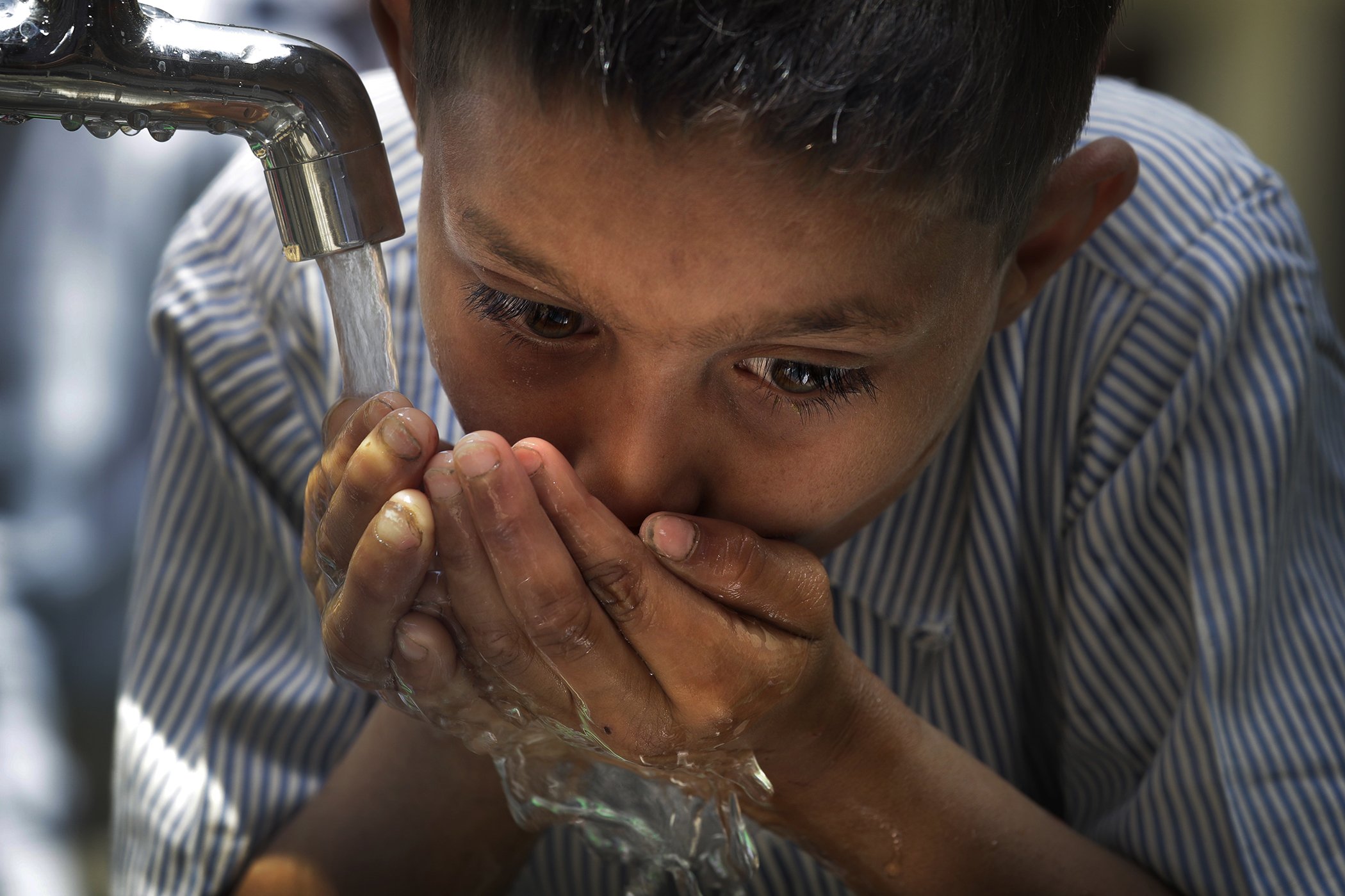The Indian government just made a major commitment to providing clean water for all. Prime Minister Narendra Modi announced on Saturday that all households in rural areas will have access to safe piped water by 2024.
India needs to prioritize and make appropriate interventions to solve its water problems, Modi said in a government statement, according to Reuters. The prime minister called for an action plan to tackle drought and launched a new committee to focus on agricultural reform.
It is estimated that 163 million people lack access to safe water in India. The Water Supply and Sanitation Collaborative Council (WSSCC), a United Nations organization, said India’s new commitment could positively affect vulnerable communities immensely.
“Piped water supply will not only sustain sanitation improvements for harder-to-reach villages but also help improve other development issues such as menstrual hygiene management, health, nutrition, and economic growth,” Sue Coates, executive director ad interim of the WSSCC told Global Citizen.
During the @NITIAayog meet, also spoke about other areas such as:
— Narendra Modi (@narendramodi) June 15, 2019
Harnessing water resources.
Making India a 5 trillion dollar economy.
Doubling income of farmers.
Better health for every Indian.
Here are highlights of my remarks. https://t.co/Xf2EdadTZo
Modi’s announcement on Saturday is part of his latest initiative to take on the country’s water-related issues. Last month, the prime minister started working with Indian water ministries to deal with polluted rivers and the shortage of clean drinking water.
A growing population, increase in water demand from the agriculture industry, and poor management of water supplies have depleted India’s groundwater. As early as next year, 21 major cities in India are expected to run out of groundwater, posing a threat to food security, according to a report by the National Institute for Transforming India (NITI).
 A boy drinks water from a newly set up water filtration tower in his school in Nai Basti Village, some 35 miles from in New Delhi, India, March 22, 2017.
A boy drinks water from a newly set up water filtration tower in his school in Nai Basti Village, some 35 miles from in New Delhi, India, March 22, 2017.
A boy drinks water from a newly set up water filtration tower in his school in Nai Basti Village, some 35 miles from in New Delhi, India, March 22, 2017.
Read More: Hundreds of Indian Villages Empty as People Flee Historic Drought
“The poor bear the brunt of insufficient water conservation efforts,” Modi said in a statement issued by the Indian government, according to Reuters.
Without efficient resources to grow food, farmers and their families especially suffer. It is estimated that 44% of the total population of India works in agriculture. Many farmers have died by suicide in recent years, drven to desperation when they could no longer depend on their crops to feed and support their families financially.
This month a record-breaking drought forced thousands of Indians to migrate, in search of water. Western and southern Indian states received below average rainfall in the 2018 monsoon season, a period that is critical to 60% of India’s rain-fed agriculture. Experts believe the extreme weather patterns causing the drought and flooding conditions that put food production at risk are due to climate change.
On Saturday, Modi said water conservation and irrigation require a massive effort and participation. Last week he wrote letters asking village leaders to construct check dams — small dams that counter erosion — and embankments along rivers and streams. and build reservoirs to tackle the water crisis.
WSSCC said it will continue to lend support to Modi’s pledge to ensure sustainable and inclusive sanitation.
“The Government of India, alongside all the partners like us, must continue to place a special focus on the rural population to leave no one behind,” Coates said.